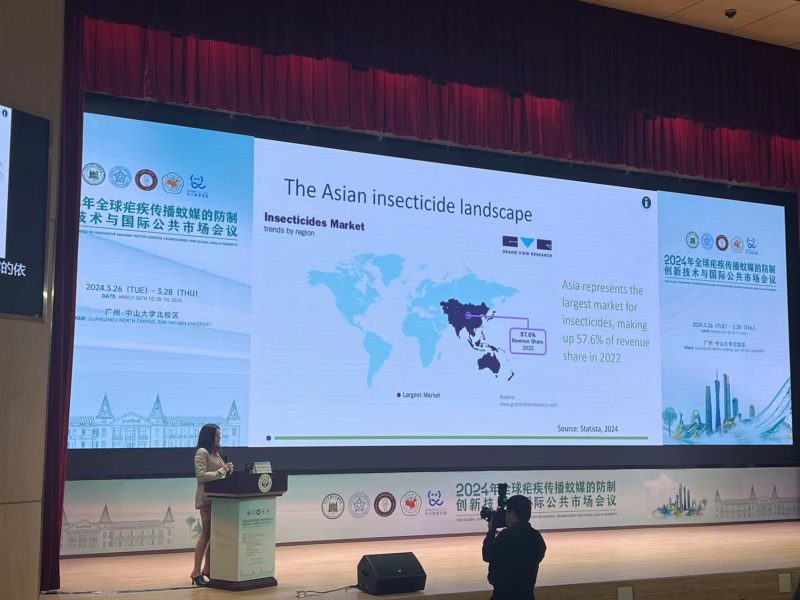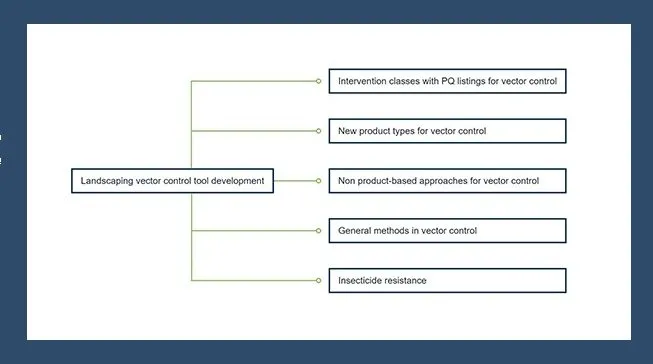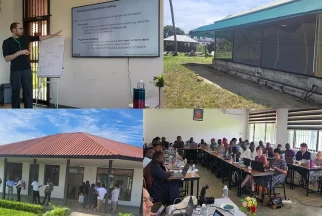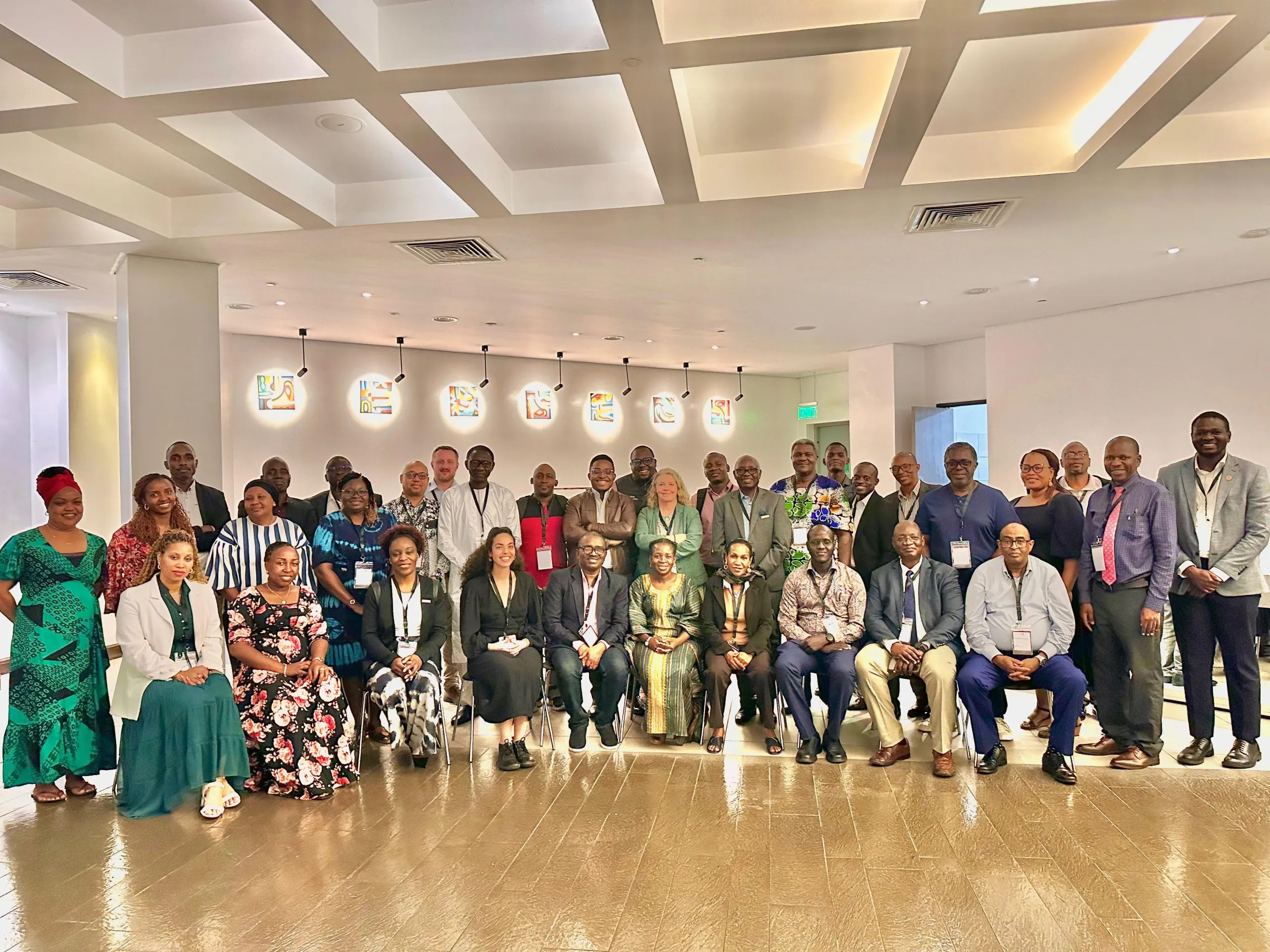All
Latest News
I2I Symposium at PAMCA Annual Conference and Exhibition 2023
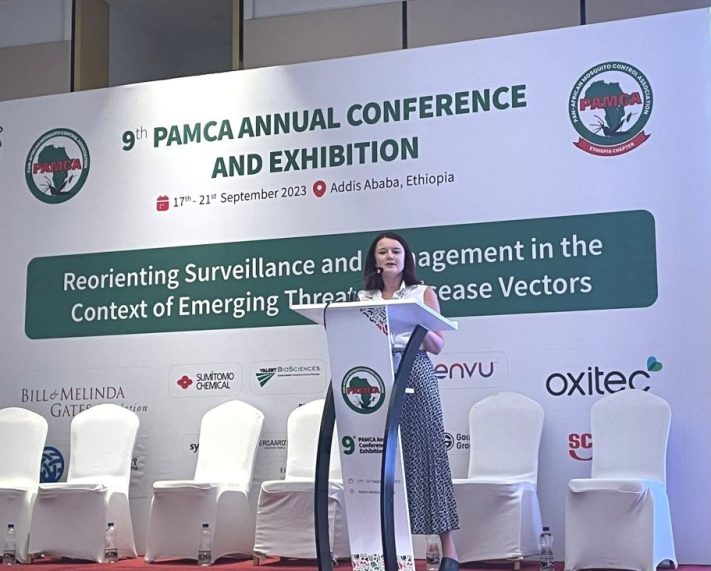
Improving and validating methods to strengthen the evidence base for innovative vector control tools, an I2I-hosted symposium at PAMCA 2023
New technologies and chemistries are strengthening the toolbox available for the control of vector-borne diseases. The decision to deploy new vector control tools should be supported by robust entomological evidence, comprising data collected using appropriate and validated methods. With the widespread expansion of pyrethroid resistance, it is imperative we make the best use of new chemistries that will target resistant mosquito populations and give implementers options to proactively manage resistance. Standard protocols are available for evaluating the bioefficacy of vector control tools, such as insecticide-treated nets (ITNs), however these were primarily developed to measure the fact acting lethality of pyrethroids and are not adequate for capturing the full range of insecticidal modes of action (MoA) now available. To facilitate effective choice, use and monitoring of new tools, it is crucial that appropriate methods are validated and widely available to measure the end points relevant to their active ingredient/s with sufficient accuracy, sensitivity and reproducibility.
With these drivers in mind, I2I’s Method Validation group hosted a symposium at the 9th Annual Conference & Exhibition of the Pan Africa Mosquito Control Association (PAMCA) on September 17th-21st, 2023, at the Skylight Hotel, Addis Ababa, Ethiopia. The symposium’s title was ‘Improving and validating methods to strengthen the evidence base for innovative vector control tools’, and the session began with an introduction to the importance of method validation and I2I’s work in this area by Rosemary Lees, Methods Validation Lead for I2I. Agnes Matope (Liverpool School of Tropical Medicine) then presented a new Method Validation Framework, accepted recently for publication in Malaria Journal, available here. The aim of this framework is to provide a standardised approach to validating and characterising a method used to collect quantitative, primarily entomological, data, and to develop a Methods Claim which can be used to define how the method can be applied and the data generated interpreted. Kath Gleave (I2I) then presented experimental data quantifying variability in standard bioassays, along with some recent modelling work and a new online application which can be used to support study design and data interpretation for synergism assays. Finally, Sarah Moore (Ifakara Health Institute), presented a case study from her team’s validation of the Ifakara Ambient Chamber Test (I-ACT), a semi-field whole net assay baited with human host.
We would like to thank everyone who joined us for the symposium and who contributed to a lively discussion! As a group we addressed questions around the need to characterise laboratory colonies of mosquitoes where standardisation is not possible, around the benefits of standardised methods being available for use across labs, and the tricky area of how far it is possible to interpret data generated by laboratory assays in understanding how vector control tools may work in practice. There was a genuine enthusiasm in the audience for improving the methods used to evaluate vector control tools, and we hope that this will be the start of a larger discussion and the formation of collaborations in method validation.
They symposium presentations can be found here
“Very insightful symposium. Thank you for exploring this long-neglected gap. We need a better understanding of how well powered our main bioassay methods are. The validation process gives confidence as we explore the expanding vector control toolbox.” Duncan Kobia, Technical Manager, Public Health at Vestergaard.
“An increased understanding of standard methodology for vector control is crucial for IVCC’s development of novel active ingredients, especially those that have a non-pyrethroid mode-of-action. I2i’s validation process will be useful not only for current methods but also for novel methodology tailored to specific key endpoint of innovative products.” Janneke Snetselaar, Technical Manager, IVCC

